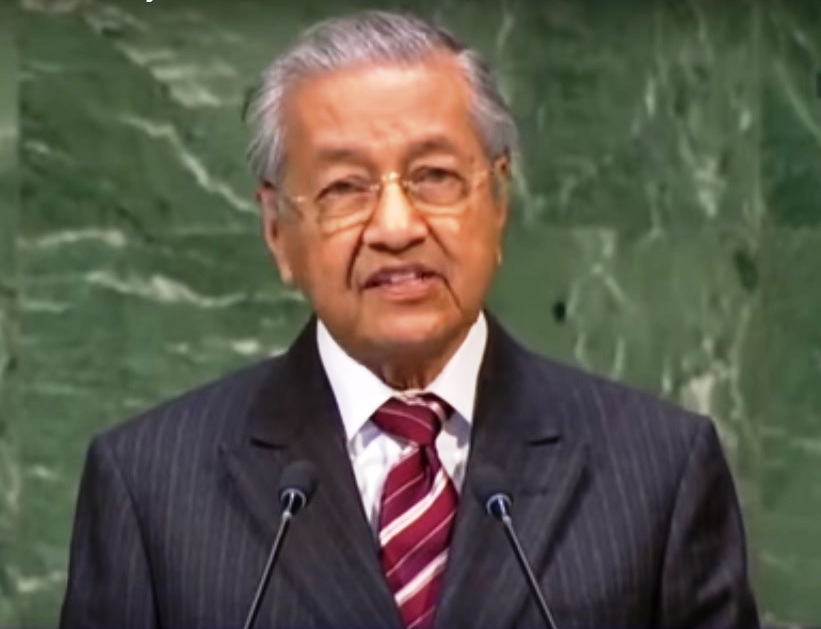Twenty years ago, Southeast Asia’s largest country was grappling with corruption, nepotism, and cronyism. A recession had landed on the Indonesian economy and the people revolted against its leader.
Turn the clock to 2018 and a similar pattern is taking place in another Southeast Asian country — this time in Malaysia.
After more than 60 years in power, the ruling National Front or Barisan Nasional coalition was defeated in the 14th general elections under almost the same theme “to rid the country of a Kleptocratic government”
And there are other similarities playing out between both countries after their respective leaders were deposed.
Indonesia muddled through ten years of zig-zagging under Presidents Habibie, Gus Dur, Megawati and found stability under the two-term President Susilo Bambang Yudhoyono and now, Jokowi Widodo.
In what seems the second chapter of a long running play, Malaysia too has set itself on the path of uncertainty, with the present Prime Minister Mahathir Mohamad set to hold the position for only two years, making him a lame duck Prime Minister from the onset.
In a pre-election pact, Mahathir promised to hand power to his one-time deputy and later arch rival Anwar Ibrahim. This now positions Anwar PM presumptive, which many see as a recipe for a prolonged internal power struggle within the ruling coalition currently headed by the 93 year old Mahathir.
Although still early days in “New Malaysia”, there already are many eerie similarities playing out which suggest that Malaysia may well imitate the ten year zig-zagging Indonesian route of political instability that took place twenty years ago.
After a brief period of euphoria following the defeat of Barisan Nasional on May 9 2018, there has been widespread disenchantment with the current ruling coalition, which is widely blamed for not addressing the ever increasing cost of living.
This is set against the backdrop of protracted and open infighting among the ruling coalition, whose leaders are carving out blocks within component parties, pitting those who are pro and against Mahathir into distinct political camps.
On a day-to-day basis, there are many examples of public displays of lack of unity among the ruling Pakatan component parties. A minister in Bersatu party called for the resignation of another minister over the Seafield Hindu temple riots in November 2018. The call by one minister for the resignation of another minister was in turn, met with the condemnation by a state Deputy Chief Minister.
Another potential source of resentment of the Malaysian populace is the transformation of race relations in the country that seemingly diminishes the status of the majority Malay populace.
After sweeping into power, the Pakatan government made many key non-Malay appointments, such as the attorney general, the minister of finance and the chief justice which did not sit well with the Malays.
The government’s plan to ratify International Convention on the Elimination of All Forms Racial Discrimination (ICERD) was met with great opposition of the Malays, which led the ruling Pakatan coalition to back down.
Malaysia now appears to be adrift, rudderless and clueless as to the direction it is taking and political pundits say unless the ruling Pakatan government takes proactive steps to reverse the trend, it looks like Malaysia is set to meander into a ‘twilight zone” that could last a good ten years, in the same mould as Indonesia after the fall of Suharto and his Golkar ruling party in 1998.
While Malaysians can accept the present government is a coalition of equals where disagreements are commonplace, it is a different thing altogether if the government is seen being preoccupied with political tit-for-tat while seemingly disinterested in solving basic everyday problems, like the prickly cost of living issues plaguing the majority of voters.
Economic experts agree the Malaysian government needs to quickly come out with economic policies aimed at greater infusion of foreign investment and it needs to show inclusiveness without offending the rights and the sensitivities any of the communities.
Meanwhile, it needs to articulate coherently to the public a planned transition in leadership that will put all speculation of disorderly transition to rest.
History has a habit of repeating itself and two neighbouring Southeast Asian neighbours could well be playing out their own versions of “ten lost years”, though each doing the same zigs-zag some twenty years apart.
Sathish used to work in a think-tank in Malaysia.

